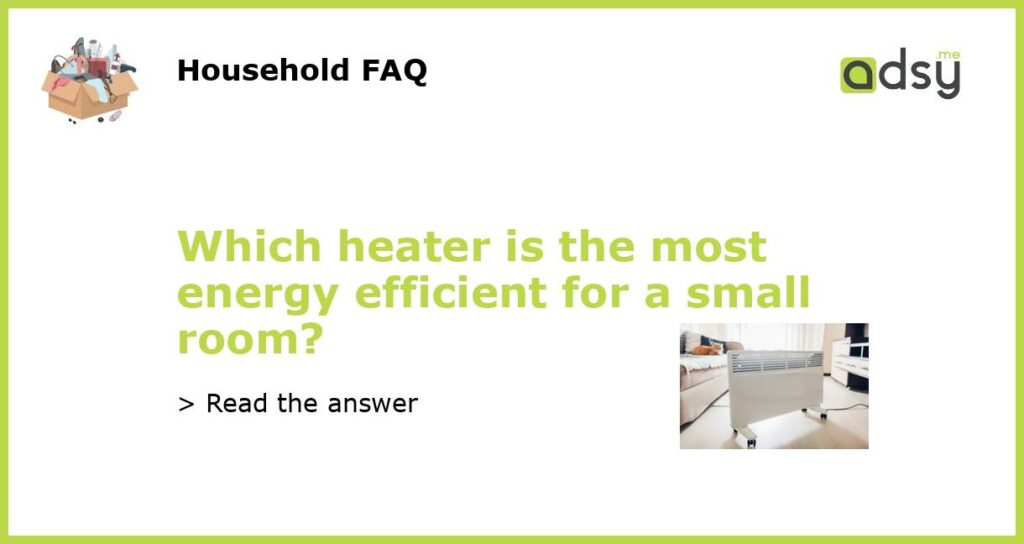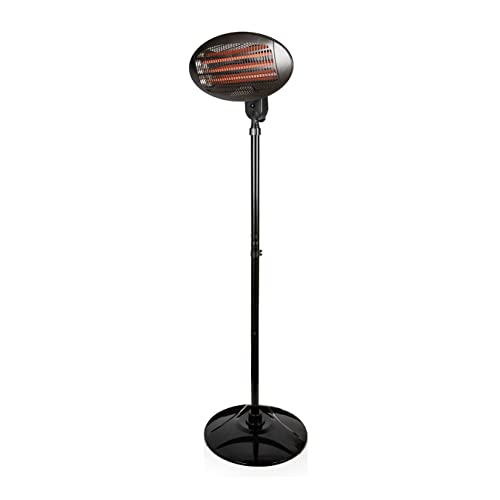Electric vs. Gas Heaters: Which is More Energy Efficient?
When it comes to heating a small room, one of the most important factors to consider is energy efficiency. Not only does an energy-efficient heater help reduce your carbon footprint, but it also helps lower your energy bills. In this article, we will compare electric and gas heaters to determine which one is the most energy efficient for a small room.
The Efficiency of Electric Heaters
Electric heaters are commonly used in small spaces due to their convenience and affordability. They work by converting electricity into heat, making them easy to control and providing instant warmth. However, their efficiency can vary depending on the type of electric heater you choose.
One of the most energy-efficient types of electric heaters is the radiant or infrared heater. These heaters warm up objects in the room rather than the air, resulting in more efficient heating. They can quickly provide heat to a small room without wasting energy on heating the entire space.
Another energy-efficient option is the ceramic heater. Ceramic heating elements are known for their fast heat-up time and even distribution of warmth. They are designed to retain heat, allowing them to continue radiating heat even after they have been turned off.
The Efficiency of Gas Heaters
Gas heaters, on the other hand, are powered by natural gas or propane. They generate heat by burning fuel, which produces a flame. While gas heaters are generally more energy-efficient overall compared to electric heaters, they may not be the most efficient option for a small room.
Gas heaters are better suited for larger spaces as they are capable of heating a larger volume of air. This means that using a gas heater in a small room may result in wasted energy and higher energy bills.
However, if you live in an area with access to affordable natural gas and have a larger room to heat, a gas heater may be a more cost-effective and energy-efficient choice in the long run. They are often favored for their ability to provide consistent, comfortable heat in larger spaces.
Considerations for Energy Efficiency
When deciding on the most energy-efficient heater for a small room, several additional factors should be considered:
- Insulation: The level of insulation in the room plays a significant role in energy efficiency. Well-insulated rooms retain warmth better, allowing the heater to work more efficiently.
- Thermostat: A programmable thermostat can help optimize energy usage. By setting a lower temperature when the room is not in use and scheduling a higher temperature when needed, you can conserve energy and save on heating costs.
- Sealing drafts: Drafty windows and doors can let cold air in and warm air out, making it harder for the heater to maintain the desired temperature. Sealing drafts can improve energy efficiency and reduce heat loss.
- Sizing: Choosing the right-sized heater for your small room is crucial. An oversized heater can waste energy, while an undersized heater may struggle to adequately heat the space.
The Most Energy Efficient Heater for a Small Room
When it comes to choosing the most energy-efficient heater for a small room, electric heaters tend to be the better option. Radiant or infrared heaters and ceramic heaters are known for their efficiency and ability to quickly warm up a small space.
However, it’s important to consider factors such as insulation, thermostat usage, draft sealing, and proper sizing to maximize energy efficiency. Gas heaters may be more suitable for larger rooms or areas with affordable natural gas access.
Ultimately, the best choice for an energy-efficient heater will depend on your specific needs, room size, and location. By considering all these factors, you can make an informed decision and keep your small room comfortably warm while minimizing your carbon footprint and energy bills.






